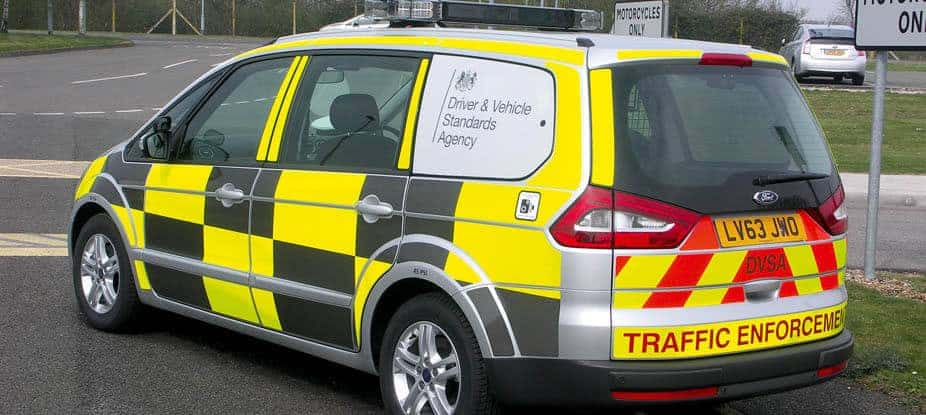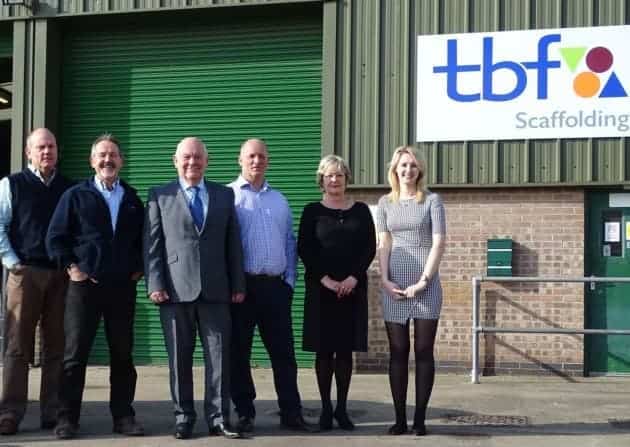Scaffold company fined for safety failings
A Scaffold company in Bridgend has been fined for safety failings following a routine inspection.
Llanelli Magistrates’ Court heard how OW Scaffolding was working at Heol y Parc, Cefneithin when they had a routine inspection which highlighted several safety failings. An investigation by the Health and Safety Executive (HSE) into the incident which occurred on 30 September 2015 found that there was poor planning, inadequate risk assessments, inadequate site supervision and inadequate and insufficient equipment. OW Scaffolding Limited, of Village Farm Industrial Estate, Pyle, Bridgend, pleaded not guilty to breaching Regulation 4 of the Work at Height Regulation 2005 but was tried in its absence and found guilty and fined £1,000 and ordered to pay costs of £3,700.Bilfinger appoints new Operations Director
Bilfinger Industrial Services UK Ltd has announced the appointment of a new Operations Director.
Paul Norton has joined the company as Operations Director, Prior to joining Bilfinger Paul spent the last two and a half years as a Director of a project portfolio management consultancy assisting EDF Energy in managing their capital portfolio across their coal generating assets. With managerial experience over a period of more than twenty years in the UK petrochemical and power sectors, Paul has worked his way from a trade level, through front line supervision to middle and senior management. Over his career Paul has demonstrated his ability in the consistent delivery of results, building high performing teams. He holds a Master of Science degree in Project Management along with a Post Graduate Diploma in Management and is a full member of the Association for Project Management, the Association of Cost Engineers and AACE International. Paul will be based in Axis House, Runcorn but will spend much of his time on our client and operating sites.Betchworth Firm Refused Permission To Run HGV’S
Licence bid turned down after scaffolder shows “insufficient respect” for law
A Betchworth scaffolder who had “insufficient respect” for the law on the operation of vehicles has been refused permission to run HGVs. London and South East Traffic Commissioner, Nick Denton, said he could not trust Daniel Lippett to run a compliant operation. The regulator’s decision to refuse Mr Lippett’s two vehicle application comes after a public inquiry on 23 March. During the hearing, the Traffic Commissioner was told that Mr Lippett had previously served as a director of M & L Elite Scaffolding Services Ltd, which held a valid operator’s licence. As part of his new application, Mr Lippett had indicated the limited company licence would be surrendered. However, Companies House records revealed that he had resigned from the company seven days before the application form had been completed. He therefore had no authority to surrender the existing licence. Mr Denton also heard that the existing licence had an adverse compliance record, with DVSA reporting: · The use of a vehicle without a valid MOT (for over two months and a further month after being stopped by DVSA examiners); · A vehicle stopped displaying a licence disc associated with a different vehicle registration mark. · The use of an unauthorised operating centre (since around October 2014) In his application for a licence in his name, Mr Lippett declared that he was already operating under the authority of the existing licence held by M & L Elite Scaffolding Services Ltd, even though he had left that company. Giving evidence to the Traffic Commissioner, Mr Lippett said at the time of the DVSA stop in October 2015, he thought the vehicle had an MOT certificate. On purchasing the vehicle in February 2015, he was assured that it had 12 months MOT. Mr Lippett subsequently accepted that he had not checked this or seen the certificate confirming the MOT. The Traffic Commissioner asked Mr Lippett why he had continued to operate the vehicle after the stop for a further month, knowing it did not have an MOT. Mr Lippett explained that, having made a booking for the MOT, he thought it was legal to continue operating. Responding to a question on the availability of safety inspection records, Mr Lippett told the Traffic Commissioner they had been retained by a DVSA traffic examiner. Mr Denton adjourned proceedings to allow these records to be produced and told Mr Lippett that if there was any chance of him being considered fit to hold a licence, his vehicle should not be operated in the meantime and that he should attend an operator licence management course. In written correspondence to the Traffic Commissioner, Mr Lippett subsequently accepted that he had made an error in saying DVSA had retained his safety inspection records. He produced four PMI sheets, which showed the six weekly inspection frequency had been exceeded. He had also attended an operator licence management course and provided photographic evidence of the vehicle’s odometer reading. That evidence revealed the vehicle had travelled 152km between 24 and 30 March 2016. Mr Lippett claimed a driver had taken the vehicle in error but the Traffic Commissioner said if he had been truly serious about ensuring it was not used, he would have taken effective steps to prevent it from happening – such as keeping the keys. In a written decision, Mr Denton said: “I find that Mr Lippett has insufficient respect for the law on the operation of vehicles, as instanced also by his continuing to use a vehicle in an unroadworthy condition for a further month after the DVSA stop had told him beyond all doubt that the vehicle had no MOT.”New CEO at Actavo Industrial Division
New senior appointment at Actavo

PASMA launches new advanced training course
 As part of its ongoing commitment to improving safety and standards in the international mobile access tower industry, the Prefabricated Access Suppliers’ and Manufacturers’ Association (PASMA) has launched a new advanced training course: Towers with Cantilevers.
Developed after extensive consultation with PASMA members and the tower-using industries, and enjoying the unqualified support of manufacturers, who, together with PASMA’s technical and training committees contributed wide-ranging expertise, ‘Towers with Cantilevers’ is the latest in a series of advanced courses that reflects the fast growing use of towers in more complex and demanding applications.
It is aimed at a diverse range of industry sectors – including construction, refurbishment, cleaning and facilities management – where access is required over fragile surfaces and large or awkward structures.
Developed specifically for the more experienced tower user, ‘Towers with Cantilevers’ explains and illustrates the essential principles of counterbalance when using kentledge in cantilever calculations.
It also interprets and explains the relevant sections of BS 1139-6:2014, the standard that specifies the requirements for complex structures such as towers with cantilevers that are outside the scope of BS EN 1004, the European product standard for normal towers.
PASMA points out that ‘Towers with Cantilevers’ focuses entirely on how to assemble and dismantle these advanced tower structures – together with their limitations – in standard configurations supported by the relevant manufacturer’s instruction manual.
Available only from PASMA approved training centres, the course is open to anyone with experience of assembling, dismantling, altering, moving and inspecting mobile access towers and who has successfully completed the Association’s ‘Towers for Users’ course.
Comments director of training, Stuart Hopkins: “This training course, which combines both theory and practical, serves to further enhance the competency of tower users across the access industry.”
“It joins a growing portfolio of courses designed to keep people safe and productive – and which will shortly be joined by other PASMA advanced courses to complete the portfolio of training to support advanced tower use.”
As part of its ongoing commitment to improving safety and standards in the international mobile access tower industry, the Prefabricated Access Suppliers’ and Manufacturers’ Association (PASMA) has launched a new advanced training course: Towers with Cantilevers.
Developed after extensive consultation with PASMA members and the tower-using industries, and enjoying the unqualified support of manufacturers, who, together with PASMA’s technical and training committees contributed wide-ranging expertise, ‘Towers with Cantilevers’ is the latest in a series of advanced courses that reflects the fast growing use of towers in more complex and demanding applications.
It is aimed at a diverse range of industry sectors – including construction, refurbishment, cleaning and facilities management – where access is required over fragile surfaces and large or awkward structures.
Developed specifically for the more experienced tower user, ‘Towers with Cantilevers’ explains and illustrates the essential principles of counterbalance when using kentledge in cantilever calculations.
It also interprets and explains the relevant sections of BS 1139-6:2014, the standard that specifies the requirements for complex structures such as towers with cantilevers that are outside the scope of BS EN 1004, the European product standard for normal towers.
PASMA points out that ‘Towers with Cantilevers’ focuses entirely on how to assemble and dismantle these advanced tower structures – together with their limitations – in standard configurations supported by the relevant manufacturer’s instruction manual.
Available only from PASMA approved training centres, the course is open to anyone with experience of assembling, dismantling, altering, moving and inspecting mobile access towers and who has successfully completed the Association’s ‘Towers for Users’ course.
Comments director of training, Stuart Hopkins: “This training course, which combines both theory and practical, serves to further enhance the competency of tower users across the access industry.”
“It joins a growing portfolio of courses designed to keep people safe and productive – and which will shortly be joined by other PASMA advanced courses to complete the portfolio of training to support advanced tower use.” Dramatic video captures collapse of scaffolding from highrise building
Onlookers capture shocking footage of scaffolding collapsing from a nine story building in Japan during high winds.
Video has emerged online of the moment when high winds peeled away scaffolding and metal panels from a nine-story building that was due for demolition in Tama, western Tokyo, Japan. The incident happened on Sunday (17 April) thankfully there has been no reports of any injures. Let us know your thoughts in the comments below.Vice Chairman of PASMA retires from Council

John Bungay, 63, has retired as vice chairman of PASMA, the trade association representing the international mobile access tower industry.
As the representative of Youngman – one of the early manufacturing members to join the fledgling organisation – his involvement spans more than 40 years, during which time, through PASMA, he contributed to the development and introduction of EN 1004, the European standard for towers. PASMA Managing Director, Peter Bennett, said: “John has played a vital role in developing this industry to what it is today. The team at PASMA and all of our members extend their thanks for his contribution and wish him every success in his future endeavours.” An acknowledged tower expert, and at one time Youngman’s product manager for towers, he was instrumental in the launch of the BoSS range of aluminium tower scaffolds – one of the first UK manufactured product to satisfy the requirements of the newly introduced European standard. Comments John: “PASMA is now recognised and respected as the natural focus and authority on towers, not just in the UK, but increasingly overseas. That’s due entirely to the dedication and commitment of the many Council and committee members who have served the Association over the years. It has been my pleasure to work alongside them and of course with PASMA Member Services.” “I wish the Association, and my successor as vice chair, Gillian Rutter, continued success in the future.” John Bungay joined W C Youngman in 1973 and until October 2014 – when the Youngman Group was acquired by Werner Inc. – he served in a variety of senior positions including chairman of Youngman Fork Truck Hire and a director of SGB International and SGB Services. More recently, from 1997 to 2002 he was managing director of SGB UK Sales, and from 2002 to 2005 managing director of SGB Youngman. In 2005 he was appointed business development director of the Youngman Group – a post he held until last year when he left the company to form Agendis Business Consultants Ltd.Cape Wins New Contract on Teesside
Cape wins five year multi-million pound contract with Conocophillips UK on Teesside
Cape has announced the award of a new contract with ConocoPhillips UK Limited. The contract will provide fabrication, mechanical, engineering and instrumentation services to the ConocoPhillips facility at Seal Sands on Teesside. The initial term of this multi-million pound contract is 5 years and Cape is mobilising on site with immediate effect. Cape is delighted to build on its existing relationship with ConocoPhillips through the award of this Contract.Commenting on the contract award Joe Oatley, Chief Executive of Cape, said “I am delighted that Cape has been able to secure this important contract and we look forward to developing our relationship with ConocoPhillips further”.











